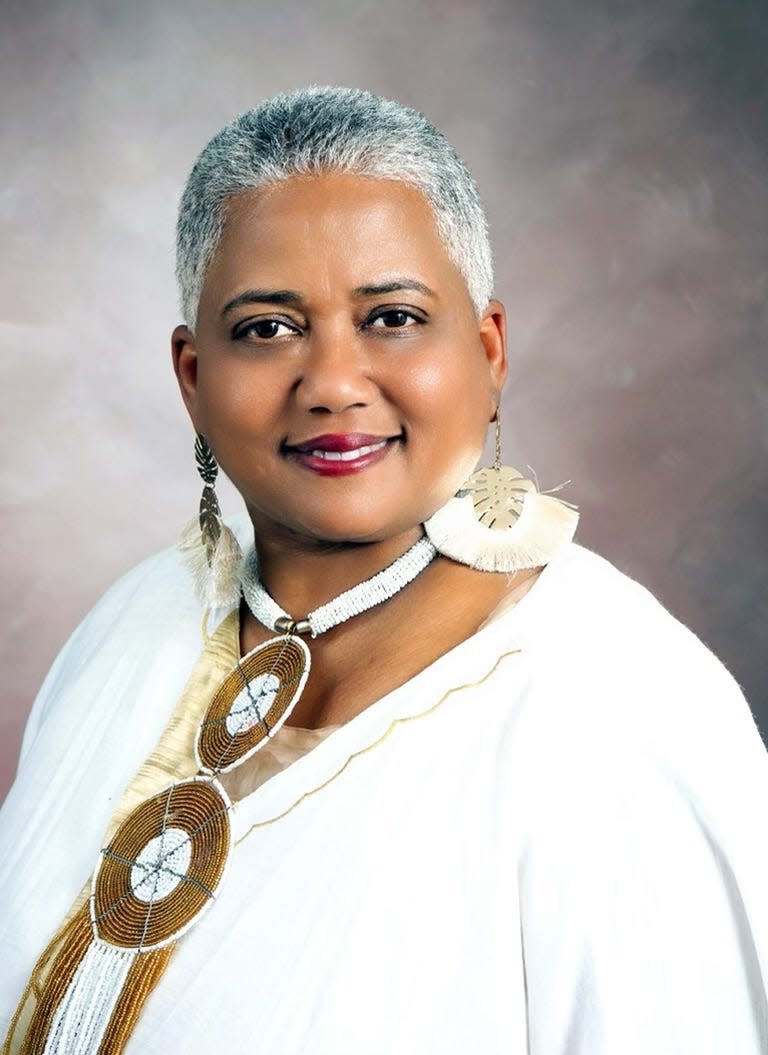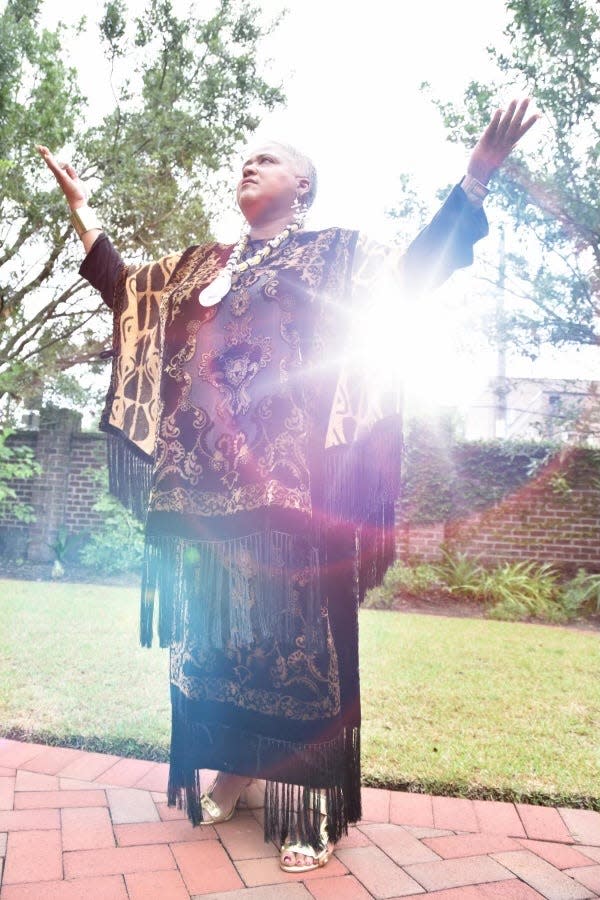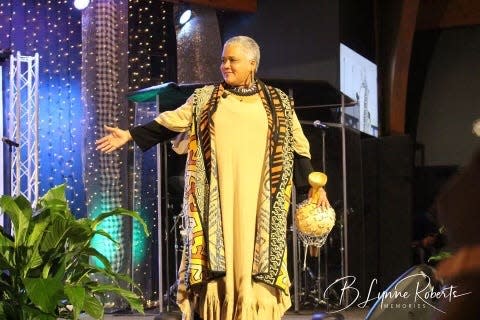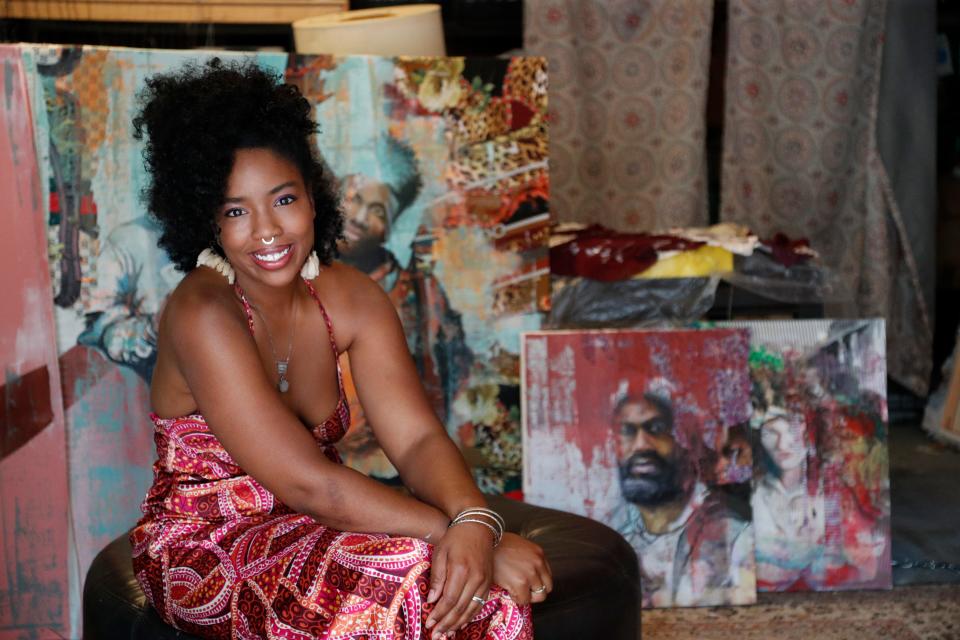Usher versus no one
I love music debates. Although they can get heated, they allow us to acknowledge the greats and to really get down to the nitty-gritty of what makes a person worthy of titles such as the GOAT, king or queen of a genre.
Watching NPR's recent Tiny Desk Concert featuring Usher served as a reminder about the superstar power that Usher holds. His run 2004 run is still unrivaled by most artists in any genre from past to present and when debates rise about what male artist could go toe to toe with Usher in a Verzuz — a webcast series created by Timbaland and Swizz Beats that invites two musicians to highlight their discographies in two 10-song rounds — the answer is no one.

The thing is, Usher has no male contemporaries. Aside from his stellar discography, his vocal talent and stage presence is unmatched. For more than 20 years, Usher has been a dominant player in the music industry, and the only artists who could match his prowess are female contemporaries that were taking over the charts at the same time as Usher at his peak.
Looking at the landscape of R&B today, there are plenty of great, male artists holding down the fort. But when it comes to who currently holds the throne as king, I'm throwing my hat in for Usher Raymond IV.
— Laura Nwogu, quality of life reporter at the Savannah Morning News
Follow me on Twitter at @lauranwogu_ or email me at LNwogu@gannett.com
Pulse of the 912
Master storyteller Lillian Grant-Baptiste is keeping the culture alive one powerful word at a time. With over 30 years of experience in weaving folktales and stories that connect generations, she's sharing her talents with the youth of today. I chat with Grant-Baptiste about the importance of oral traditions and the storytelling programs she's hosting in partnership with Live Oak Public Libraries.
Laura Nwogu: How did you go about finding your authentic voice?
Lillian Grant-Baptiste: “I think we all have such a powerful story to tell, but my great-grandmother had a tremendous influence on my life. She was a masterful storyteller. She always told stories, particularly stories from the Gullah Geechee tradition. And as I got older and being independent, trying to find my own way, I kind of left those stories behind. But then I realized the importance of holding on to those stories and finding strength in those stories.

“And then as an organizer, I started out working at the housing authority in public housing neighborhoods, and I began to realize just the importance of helping people understand their unique story, and telling their story, and how the story of folks who came before them help to build and create a pathway for them to move forward. So, I've started using storytellers in the work that I did as an organizer, as a trainer and as a director of a youth program. All of that was some of the tools that I used in my life and in the work."
LN: Storytelling is such a big part of culture, knowledge and history, especially when it comes to the African diaspora. What, for you, is the key to telling the story of folktales in order to really relay the meaning behind them?
LGB: “Part of it is making sure that you understand that that story pays homage to the ancestors. That this is their story and — our ancestors as they were brought here and went through so many atrocities — it was those stories that often time gave them strength. So, it's important to remember as you tell the story that you don't just tell it from your own perspective, but that you have a voice that you must bring forward from those who came before you.”
LN: Has living in Savannah and being so close to the Gullah Geechee culture given you a different perspective on the art of storytelling?
LGB: “Certainly. I think when you think about Gullah Geechee storytelling and the Gullah Geechee culture and people, they are so connected to their African roots. And I think when you look at how they held on to some of that memory and were able to preserve their culture, a lot of it was pretty much linked to the ability to hold on to those stories.”

LN: You’ve partnered with Live Oak Public Libraries to host a series of storytelling sessions with teens. Can you tell me a bit more about that?
LGB: “We'll be doing storytelling at six libraries, branches of the Live Oak libraries.
I'll be talking about the importance of understanding the whole piece when you hear someone say finding your voice. What does that mean? What does that phrase mean to 'find your voice' and help them to come to realize, first of all, you have a voice. You have influence. You have gifts. You have passions. How do you tap into those gifts, those passions, your sphere of influence, to be able to make a difference? To not just use your voice, but to use your voice strategically to affect change? And just talk to them about how it may not start out as something huge. It may start out as one step, one decision that you make, but how do you then move and cultivate that and become a voice in your family? Become a voice on your block? Become a voice in school in the community?

“The library is such a tremendous resource, so it's really exciting to be able to connect with the library to do this program.”
LN: You’ve been doing this for so long. How does it feel to be in a position where you're able to impart lessons to the youth in discovering their own voices and sharing their own stories?
LGB: “Powerful.
“Because that's what it's all about. There's a proverb that says 'The youth walk faster, but the elders know the road.' So we know that we need both; we need the energy of the youth, but we also need the wisdom of elders to show the young people the way. And we need to figure out a way that we all can come together and support each other. It's so important that, as elders, we make sure that we understand the tremendous resource that our young people are. And then not only do we invite them to the table, but then we give them a voice at the table.”

LN: I love that. Do you remember a time in your storytelling journey when you realized that you had a voice at the table?
LGB: “It's interesting. I started my journey as a storyteller when I moved from Savannah to New York. It was a critical time in my life because I moved from Savannah, my parents were divorced, and the year before I went to a school where there were only maybe 75 students in the entire school to a large school; it was totally different. It was, at first, very difficult to find my voice. I had a voice, but I was ashamed of my accent. I didn't feel like I fit in.
“But then there was that one teacher who kind of took me under her wings and cultivated that skill that gifted me and taught me how to use that voice that I had. And I started with poetry sessions and learning about the Harlem Renaissance, and that was the door that opened for me to walk the path that I am now.”
LN: And why do you love the 912?
LGB: “This is my home. This is where I was raised. This is where my heart is. This is where my roots are. We’re slap dab in the middle of the Gullah Geechee corridor. There's so much history, a rich culture here and I couldn't imagine living anywhere other than Savannah. This is my home. This is where my roots are.”
Visit the Live Oak Public Libraries website for more info about Speak: Your Voice & Your Story Matters.
This interview was edited for length and clarity.
Art of The 912

The 912 newsletter will highlight a local Black artist every two months as the header image for the weekly issue. This month's artist is Gabe Torres.
Follow Torres on her website and Instagram:
Website: gabrielleelizabethtorres.com
Instagram: @get.arttorres
Stories of The 912
1: Sunday Supper is back and their new space, The Collage, is hoping to change the game in Savannah
The new collaborative creative hub at 48 Posey St. in midtown Savannah, features an art and tattoo studio, custom graphics and t-shirt shop, recording studio, event space, and multimedia production area.
2: Dine and Dash: Lose your mind over the cheesecake bowl at Sweet Soirees by Nicole
Dine and Dash host Martina Yvette meets with Nicole of Sweet Soirees by Nicole to talk about her business and her cheesecake bowls.
3: Dine and Dash: Have a divine cup of coffee, engage in culture at The Culturist Union
Dine and Dash host Martina Yvette speaks with Elbi Elm of The Culturist Union about their drink options and events happening at the space.
4: Savannah Police Chief Roy Minter will resign, focus on U.S. Marshal confirmation
Savannah Police Chief Roy Minter has resigned from his post to focus on the confirmation process for his nomination to serve as U.S. Marshal for the Southern District of Georgia. Minter's last day with the Savannah Police Department (SPD) will be July 29.
5: Following Dobbs decision, SCAD removes sign in front of building named for Justice Clarence Thomas
While at the dedication of a Savannah College of Art and Design building named after him in 2010, Supreme Court Justice Clarence Thomas praised his hometown's hospitality.
That may no longer be the case, especially for a group of SCAD students who wants his name removed from SCAD's building, and any vestige of the justice scrubbed from the city.
This article originally appeared on Savannah Morning News: The 912: Usher versus no one

